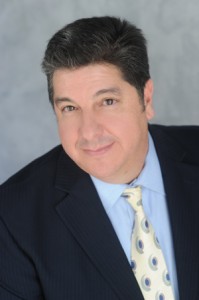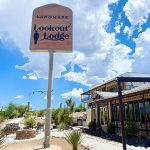
13 Aug Peak Virtues for the Family Business
 Recently Walter Barela, Executive VP and COO of Peak Hospitality was interviewed by Tina Vasquez of Hispanic Executive Magazine. They did a little Q & A covering a little of Walter’s history, the hotel industry, hotel investment, hotel management, Peak Hospitality’s business approach and Peak’s passion for the industry. Great perspective from Mr. Barela and some great insight from one of the leaders in the New Mexico/Southwest hotel industry.
Recently Walter Barela, Executive VP and COO of Peak Hospitality was interviewed by Tina Vasquez of Hispanic Executive Magazine. They did a little Q & A covering a little of Walter’s history, the hotel industry, hotel investment, hotel management, Peak Hospitality’s business approach and Peak’s passion for the industry. Great perspective from Mr. Barela and some great insight from one of the leaders in the New Mexico/Southwest hotel industry.
You can read Tina Vasquez’ full article here on hispanicexecutive.com.
Q & A
HE: What would you say is Peak Hospitality’s critical differentiator as a hotel management firm?
Walter Barela: The way we started says a lot about who we are as a company. We’re very much a family business. I came back to Albuquerque because I wanted to be a part of my kids’ lives and live near my parents—my mom is now 90. It wasn’t just passion for the industry that led us to form the firm; it was a creation out of necessity. I said to my partner, my brother, “I know you want to come home, too.” Just to round things out, our sister, who owned Group II Design in LA, made the trek home and has been integral in helping us keep down the cost of construction and renovation with her purchasing power and creative designs.
HE: Did you find that growing up in the industry was helpful?
WB: Definitely. People often say they have an entrepreneurial attitude, but with us it’s not just lip service. We grew up in the industry, we know this industry from the inside out, and we took that knowledge to form our own business. We take hotels that aren’t the best on the market and we ask ourselves, “How do we make them successful?”
HE: What has been the key to making these less-than-desirable hotels successful?
WB: It goes back to how our parents raised us. When we were kids—and this is a very Latino thing—my mom would say, “You may not have new clothes, but your clothes are clean and ironed.” And if you’re Latino and someone comes to your house, the first thing you do is offer them something to eat and drink. So that’s what we focus on: cleanliness, having positive, friendly employees, and offering great coffee and food at our breakfast bar. I often joke that Latinos are hospitable by nature. We’re built for the hospitality industry.
HE: Across the hotels you manage, there are 160 employees, and that doesn’t include employees in your corporate office. Was leadership something that came naturally to you?
WB: Not necessarily. We all learn along the way, though there are some people who are natural leaders. I like to lead by example. I believe it’s not enough to listen; you have to acknowledge. You can come into my office and I can keep looking down and say, “uh-huh, uh-huh” when you talk, or I can put my pen down, look you in the eyes, and listen to what you’re saying. It’s about respect, and I take the latter approach.
HE: Would you say respect is the most important thing when it comes to being a leader?
WB: Completely. Because I was such a young manager early on in my career, I was leading people who were much older than me. I had to be careful how I navigated things. I made my mistakes along the way, like everyone else, but building mutual respect is the most important lesson I learned. There’s a big difference between being a boss and being bossy.
HE: When it comes to working with your investors, what are the approaches that have been most effective?
WB: Number one is being honest. I grew up a Hispanic kid in Albuquerque with my word being the only thing I had to hang my hat on. Your reputation is everything. We say what we mean; we’re honest; we walk the walk. We’re also very conservative in our budgets. Even the bank said that to us. I never want to over-promise and
under-deliver.
HE: Companies like Airbnb are proving to be very successful. How are these changing the industry?
WB: A lot of companies view Airbnb as a threat because it’s competition—especially in places like Los Angeles, San Francisco, and New York City. It definitely fills a need. But look: Companies like this aren’t paying taxes, they’re not properly litigated, and there isn’t any business liability. We saw the same thing with hostels, and when lawsuits started to happen, that industry changed. I think we’ll see the same thing with this trend.
HE: Do you see this trend of staying with “local hosts” instead of hotels as a threat to your company or industry?
WB: I don’t feel threatened by it. We’re offering a very different experience, and it’s not horrible to give people access to popular markets. I believe this trend is very specific to millennials. They have a very different way of thinking, and our industry is still figuring out how to market to them. We’re working on options to offer them as we speak.







No Comments